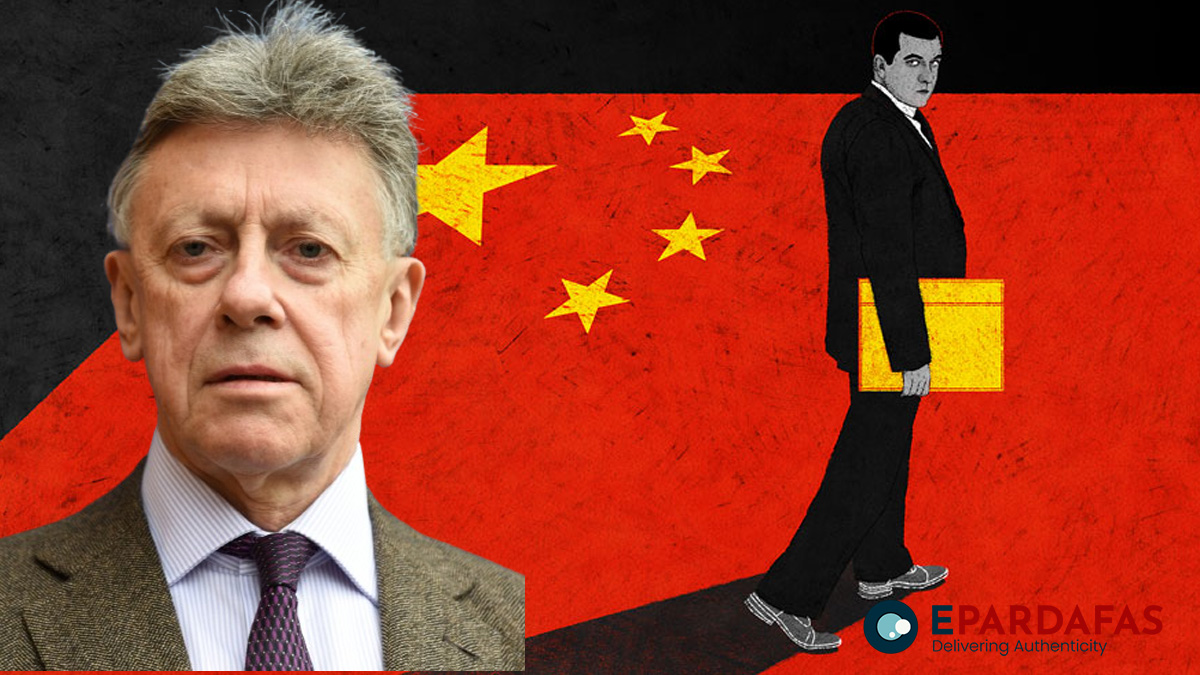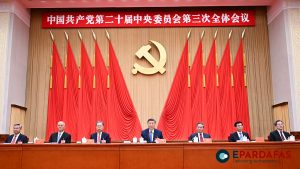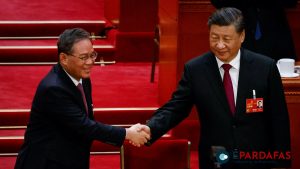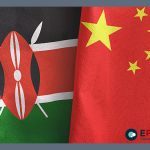
British Intelligence Agencies Grapple with China’s Espionage Threat: A Legacy of the ‘Golden Era’
London, January 27, 2024 – The former deputy head of MI6, Nigel Inkster, has issued a grave warning about the insufficient expertise of British spy agencies in tackling the severe threat from China’s intelligence services. Inkster points to the government’s pursuit of a “golden era” of friendship with Beijing as a contributing factor to the UK’s current vulnerabilities.
In an extensive interview with i, Inkster, who served at the Secret Intelligence Service for 31 years, asserts that Chinese espionage now poses greater long-term risks to the UK than Russian spying. However, he highlights a critical deficiency: British agents lack the necessary knowledge of China, including the Mandarin language skills required to effectively counter these sophisticated threats, INEWS UK reported.
China’s “industrial-scale cyber espionage operations” against advanced Western countries are well-established, but Inkster adds a cautionary note that Beijing is intensifying its deployment of spies on the ground. He describes a significant increase in human intelligence collection operations, with Chinese services seemingly operating without political constraints and being incentivized to take risks to acquire essential intelligence.
MI6, and the wider UK intelligence community, face challenges in language expertise and collective historical and cultural awareness regarding China, according to Inkster. He traces these security deficiencies back to the government’s prioritization of warmer relations with Xi Jinping’s regime to enhance trade links in the early 2010s, a policy supported by then-Prime Minister David Cameron and Chancellor George Osborne.
Since becoming the Foreign Secretary two months ago, Lord Cameron has faced criticism for the UK’s previous dovish approach to China during his tenure as Prime Minister and his subsequent business links with Beijing. Inkster emphasizes his apolitical stance, noting that he is not attacking individuals but pointing out problems that still need to be addressed today.
In 2015, the UK government envisioned a ‘golden era’ of relations with China, and Inkster suggests that this context might explain why the security service wasn’t as focused on Chinese covert activities. The intense focus on transnational terrorism in the early 2010s further diverted resources away from other concerns, hindering intelligence capabilities.
The head of MI6, Sir Richard Moore, has acknowledged the agency’s increased dedication of staff and funding to China, but Inkster believes the agency is still playing catch-up. Despite ongoing efforts to address deficiencies, he notes that it takes time to enhance the capabilities of the UK intelligence community.
Inkster welcomes the new National Security Act, implemented last year, believing it will aid in the prosecution of Chinese spies. He sees it as a crucial step, replacing an Official Secrets Act derived from the First World War.
The Evolution of Cameron’s Views on China: A ‘Golden Era’ to Deteriorating Relations
David Cameron’s push for a “growth partnership” with China three years into his first term as prime minister marked the beginning of the envisioned ‘golden era.’ This was exemplified by his famous pub outing with President Xi Jinping in 2015, highlighting the close ties between the two nations.
After leaving office in 2016, Cameron continued engagement with China, facing scrutiny over his role as vice-chairman of a UK-China investment fund. The Intelligence and Security Committee suggested his position may have been engineered by the Chinese state to lend credibility to Chinese investment.
Cameron defended his record, emphasizing the need for Britain to grow and trade globally. However, he acknowledged a shift in his views, citing China’s increased aggression over issues like the Uyghurs, Hong Kong, and ‘wolf warrior’ diplomacy. The current Prime Minister, Rishi Sunak, declared in 2022 that the ‘golden era’ with China was over.
China’s Ruthless Tactics: Espionage, Intimidation, and the Propaganda War
Inkster draws a distinction between the perceived threat from Russia and China, stating that while Russia is akin to the weather, China is the climate. He believes that the cumulative effect of Chinese espionage, coupled with their strategic intent, is strategically more concerning than Russia’s actions.
China’s Ministry of State Security (MSS), often likened to a combination of the FBI and the CIA, employs ruthless tactics against Chinese emigrants abroad. There is a broad effort by ‘China Inc’ to target officials who have fled overseas, using various methods such as pressuring families, hiring private detectives, and manipulating diaspora communities.
Inkster urges the government to be conscious of potential Chinese attempts to interfere in British politics and public life using these tactics, emphasizing the need to avoid demonizing the Chinese diaspora population in the UK.
The Propaganda War and the UK’s Taiwan Quandary
Inkster, long wary of China’s spying efforts, highlights the frustration over security warnings regarding Huawei components in the UK’s 5G mobile network. He notes that allegations about foreign spies are being used as domestic propaganda to secure the Communist Party’s rule and rally the population behind President Xi’s global ambitions.
With tensions rising over China’s aggression towards Taiwan, Inkster remains optimistic that China seeks to avoid a military confrontation. However, he suggests that the UK may need to decide on its course of action if Chinese forces mount an invasion. As an ally of the US, the UK may face expectations to commit resources to the theater, raising questions about intelligence support and potentially committing troops.
As the UK grapples with these complex challenges, Inkster concludes by highlighting the importance of recognizing the evolving geopolitical landscape and the need for strategic decisions in the face of an increasingly assertive China.
















Comments